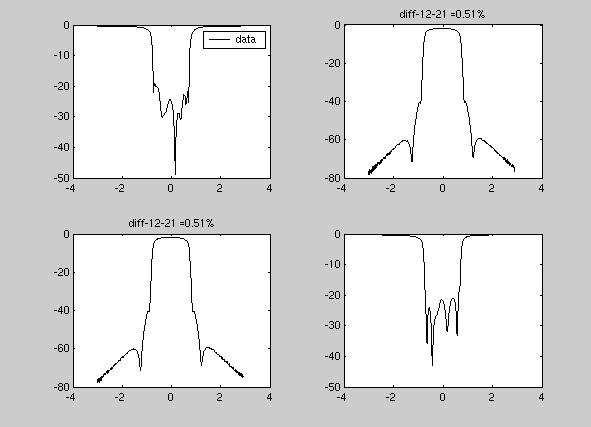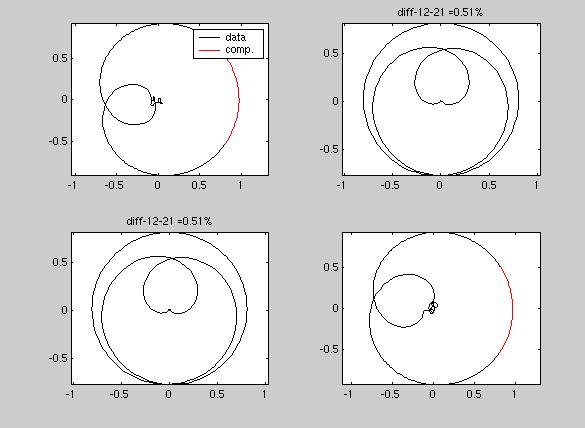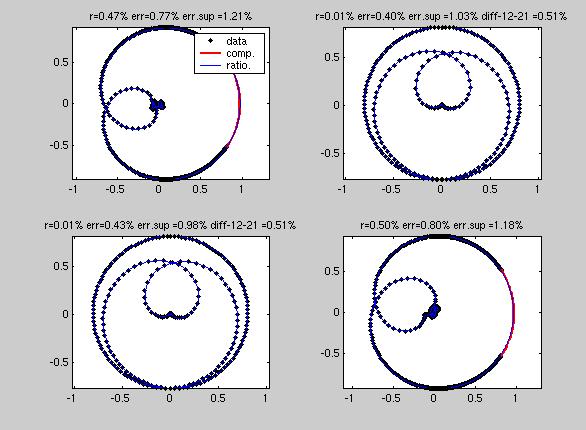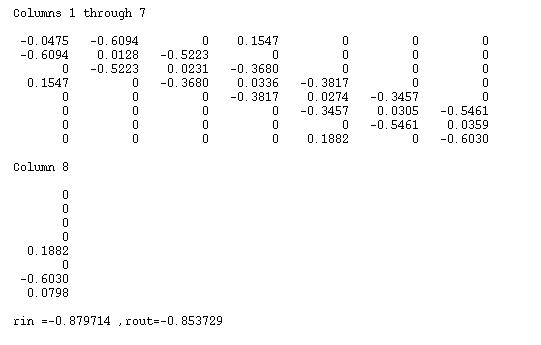Presto-HF
What is Presto-HF for ?
Presto-HF is a matlab based toolbox dedicated to the identification problem of low pass coupling parameters of band pass microwave filters. In this problem one wants to recover the coupling parameters of the low pass electrical equivalent circuit of a filter using scattering measurements of the latter. This information is then typically used for tuning purposes.
What kind of techniques are used to solve this inverse problem ?
The techniques used in Presto-HF are based on analytical completion methods, matrix valued meromorphic and rational approximation as well as local optimization over the lie group of orthogonal matrices (see references). In particular Presto-HF handles scattering data containing some delay components induced for example by the access devices.
For the matrix valued rational approximation stage Presto-HF relies either on hyperion or RARL2, both rational approximation engines developed in our team.
As a toolbox, Presto-HF has a modular structure, which allows for example to include some of its building bricks in an already existing software.
References:
- a research report in french
- some pre-print of a paper at the IMS 2003, Philadelphia
Performance
From our various experiences, the computation time to recover coupling parameters of a 10th order filter is less than one minute on a 850 Mhz Pentium III.
Acknowledgements
The research effort that underlies this toolbox was partly (but constantly) supported by the french spatial agency (for short CNES). We want here to thank the microwave team of the university of Limoges (IRCOM) as well as the filter department of Alcatel Space for their feedback as "real world" users of our software that allowed us to improve the latter in a significant way.
Contact
For more information about Presto-HF please contact,
Fabien Seyfert
e-mail: fseyfert@sophia.inria.fr
tel: (33) (0)4 92 38 78 97
Some screen shots
In what follows we present some screen shots of a typical identification session performed on some scattering data provided by the french space agency (CNES). The corresponding filter is made out of 4 dual mode cavities. The central frequency of the filter is 11,9 Ghz and its bandwidth 40 Mhz. The filter order is therefore 8 and the coupling geometry has been chosen such as to realize 4 transmission zeros.

Nyquist plot of the measured data

Bode plot of the data - Caution: we work here with normalized frequencies

Nyquist plot of the completed data - in red the analytical completion

Nyquist plot of the matrix valued rational approximation (blue line)
The number after the "err=" token is the relative error between the rational model and the data

Normalized low pass couplings and i/o loads